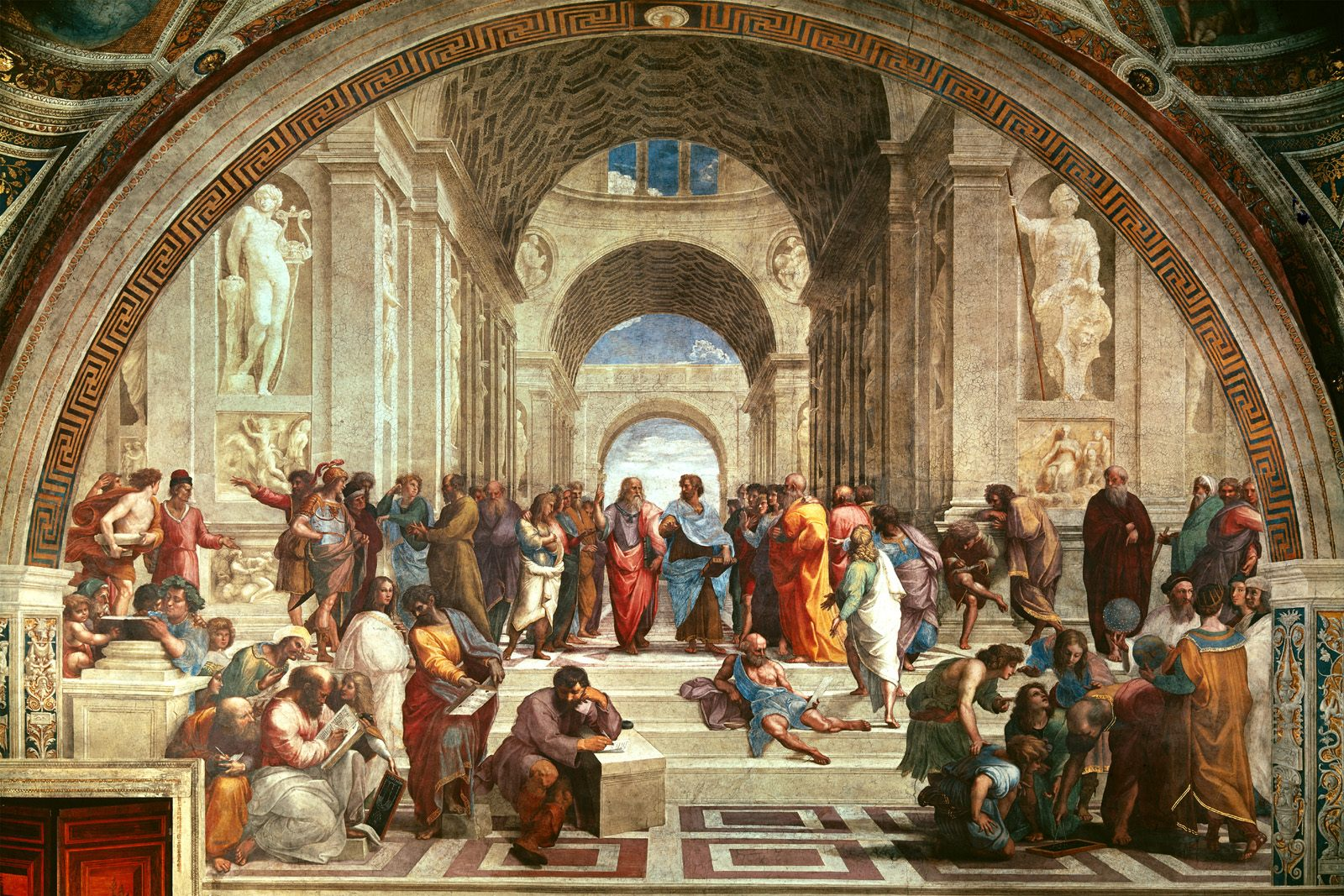Creation of My Personal Philosophy
What is my personal philosophy?
From studying philosophy last year, I thought this may actually be important, since it helps create a foundation of who I am and what I do. I previously thought that philosophy majors were different, and belonged to the Starbucks barista clan who may eventually become academics, or something. I couldn’t imagine there would be some practical work in this field; I thought philosophers historically would stand around in a long robe pondering questions. This image, for example, doesn’t help me visualize what they do besides loft around and think.

The School of Athens by Raphael, Courtesy of Wikicomons
This is “The School of Athens” fresco somewhere in Rome (or Vatican City). If you look at the center two people, you already know who they are. On the left is Plato, and the right is Aristotle. Because they just look like street bums having a discussion in their robes, I just assume they’re “philosophizing.” This doesn’t paint a good picture of what philosophy is to me.
It wasn’t until I started to look into this BBC series by Alain de Botton called “Philosophy: A Guide to Happiness.” If you want to check it out, the whole series is on youtube, and this link will direct you to episode one. I thought of this as philosophy that’s practical because we can relate these concepts back in our lives and realize it’s all just a game of self-help over the last two millennium. Well, that’s an over-simplification, as well as my explanation of why I’m so interested in philosophy, but these simpler wordage will have to suffice.
Now you must be wondering why I took an interest in this after I took a philosophy class at Cal Poly. Well, that’s because the teacher was dry and I thought Socrates was crazy after reading the Republic (oh come on, philosopher kings?). As well as you know, I dove deep in this realm for two weeks and came to a much better understanding of myself. After finishing this BBC series, as well as doing a “Great Courses” course on the history of philosophy, I figured I’d take the best parts of what I’ve learned and integrate it into my own philosophy I can follow. It’s scattered, like when Conner (Chad) came up with his own religion during our Freshman year.
I’ll keep it short: The way I want to answer my own question is by asking myself “How do I want to live?” or “What is required for me to have a good life? I abide my my own rules, which is just stolen or “well-adapted” from our great thinkers. I value in my own personal philosophy the following things: critical thought, kindness and care to others, respect, finding meaningful purpose in what I do, as well as what I say, keeping myself balanced, and to expand my knowledge. These elements should allow me to answer some of those prickly problems addressed by many philosophers: knowledge, conduct and governance. In the end, it’s about what is a good life, and many philosophers had so many ways of answering this. And I think from what I said before, and to continue doing those things in the future, I have, and will continue to have, a good life.
What is required for you to have a good life?
Written by Jeremy Wong and published on .